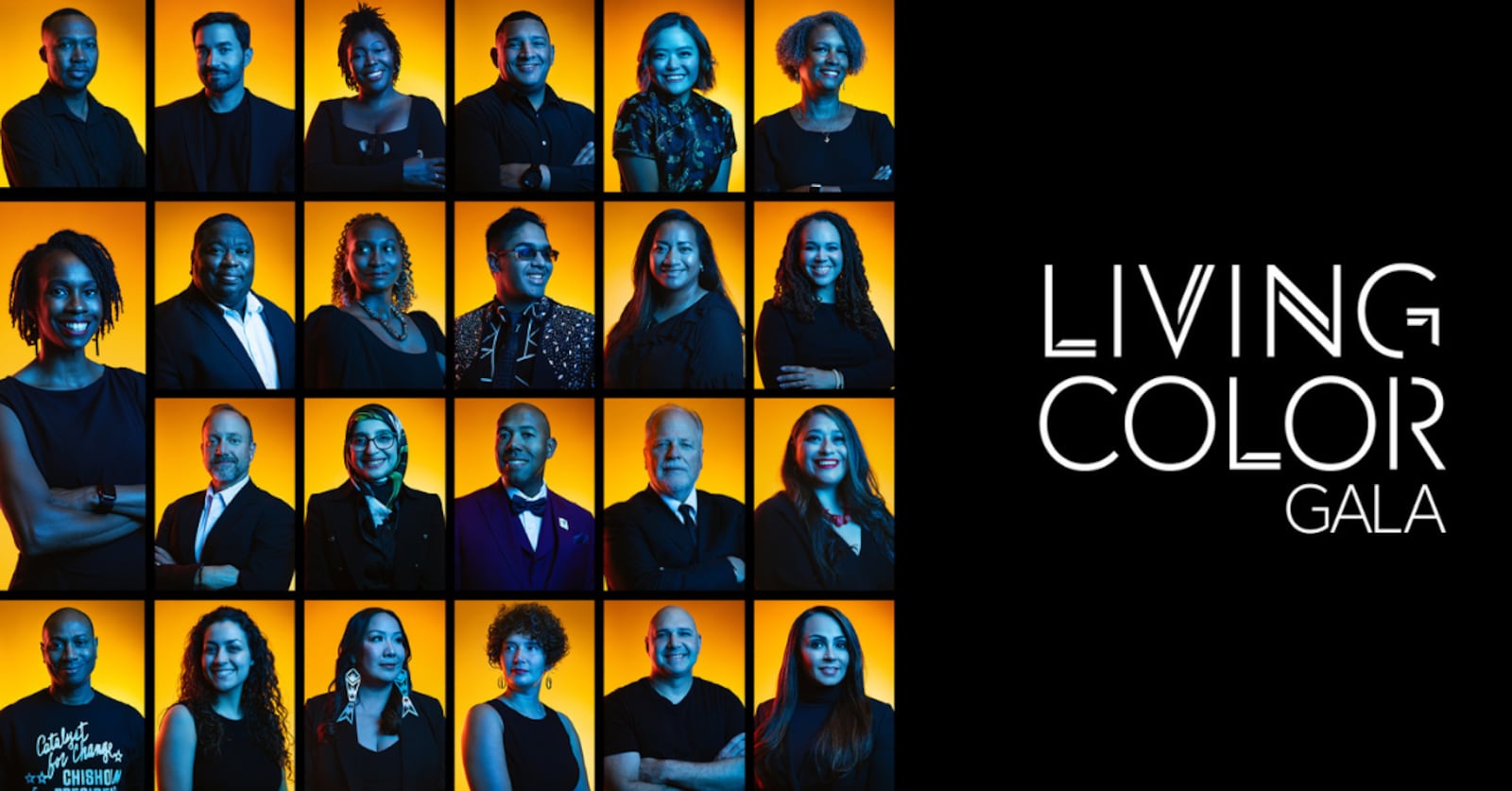In partnership with Living Color Utah, our fifth annual Living Color Awards honor the individuals and organizations who are working toward a more equitable and inclusive future for our state. Congratulations to this year’s inspiring honorees.
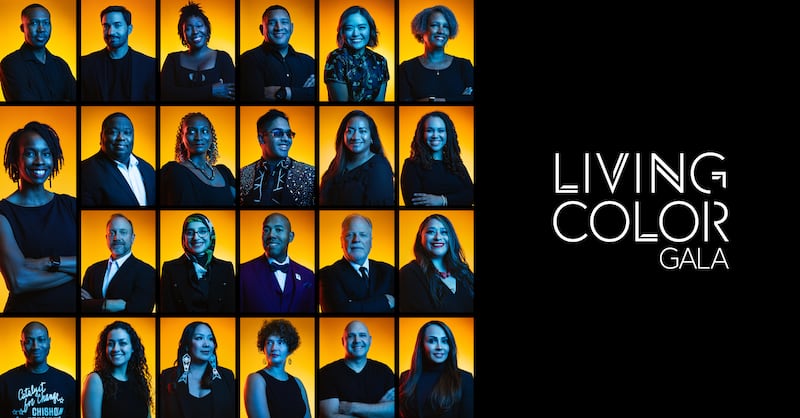
Community Involvement
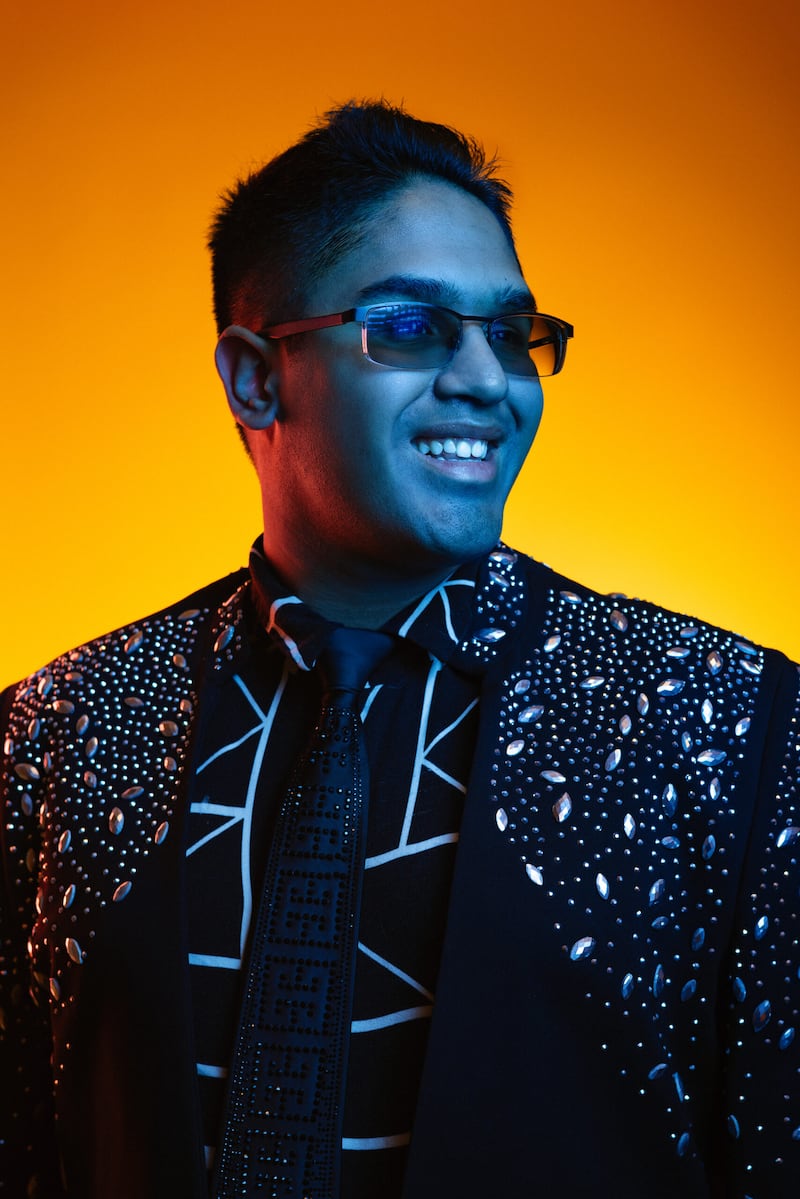
Jordan Jackson
Executive Director | LGBTQ.UT
What is your favorite part of your job?
Through working to keep LGBTQ.UT updated, I get to see new resources, businesses and opportunities for queer people flourish every day. I started LGBTQ.UT with roughly 130 resources, and it’s since grown to over 160. I have worked closely with other LGBTQ.UT resource organizers, and it’s been incredible to see their growth over time and the difference they make in the community.
What do you look forward to achieving most?
One of my goals is to expand LGBTQ.UT’s framework to as many states as possible and have locally operated, centralized, LGBTQ+ resource guides across the nation (ex. LGBTQ.CO, LGBTQ.CA, LGBTQ.AZ), as well as a centralized national guide. With a network of resource guides—and thanks to the power of anonymized data analytics—the LGBTQ.UT framework could act as a research and data hub for LGBTQ activists, organizations, allies and queer individuals across the nation.
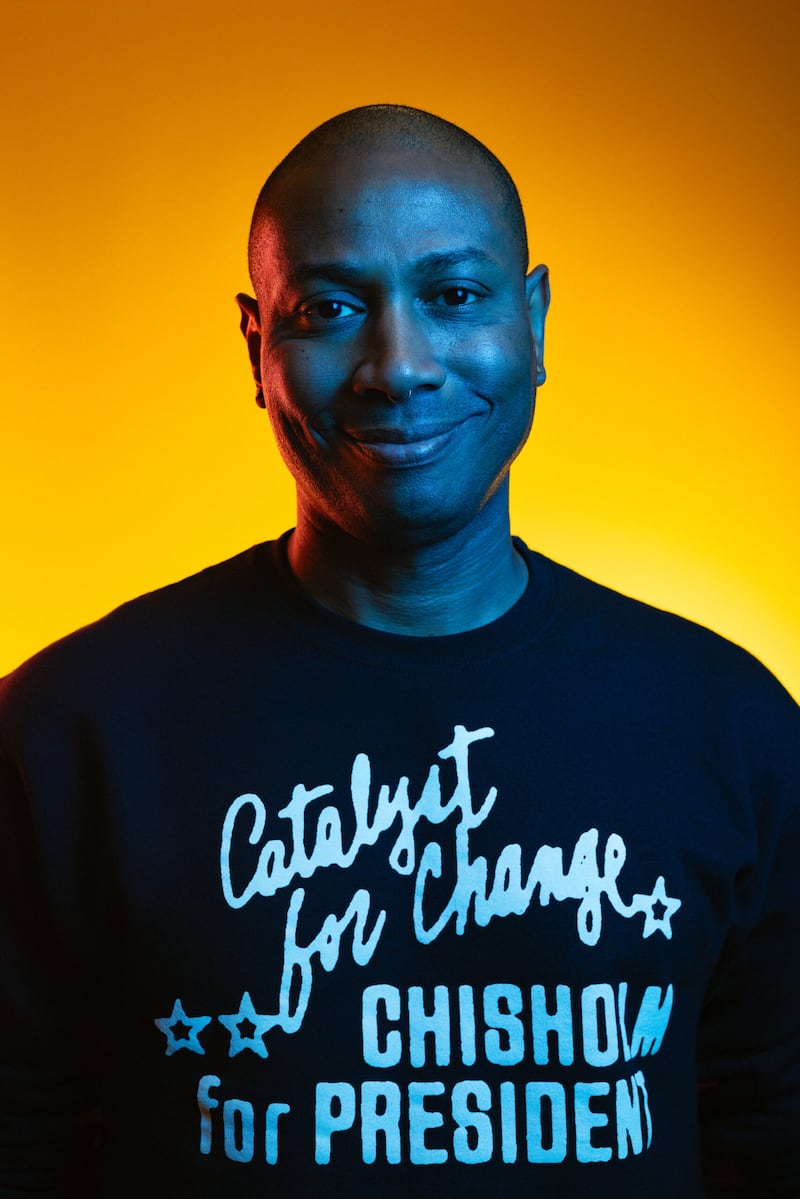
Russell Roots
Black, Bold & Brilliant Program Manager & Director, Film Exhibition | Utah Film Center
How are you involved in changing the landscape of Utah’s business community in regard to DEI?
Black, Bold & Brilliant focuses on authentic and nuanced representation through film critique and discussions led by Black Utahns. The program guides audiences through their reflections and responses on issues affecting the Black community by using cinema as a mirror to draw upon local voices, artists, experts and partners.
What would you like to see happen in terms of DEI efforts in Utah?
I would like to see more nuance in the understanding of non-majority communities and their related cultural customs. Due to the cultural disparities in Utah, relying solely on media created by under-informed (or uninformed) parties often leads to misunderstanding and potential harm. I love programming films, conversations and events that tap into viewers’ passions. I’m a big film nerd and could talk all day about how cinema provides intended and unintended views of our country and the values it holds.
Nonprofit
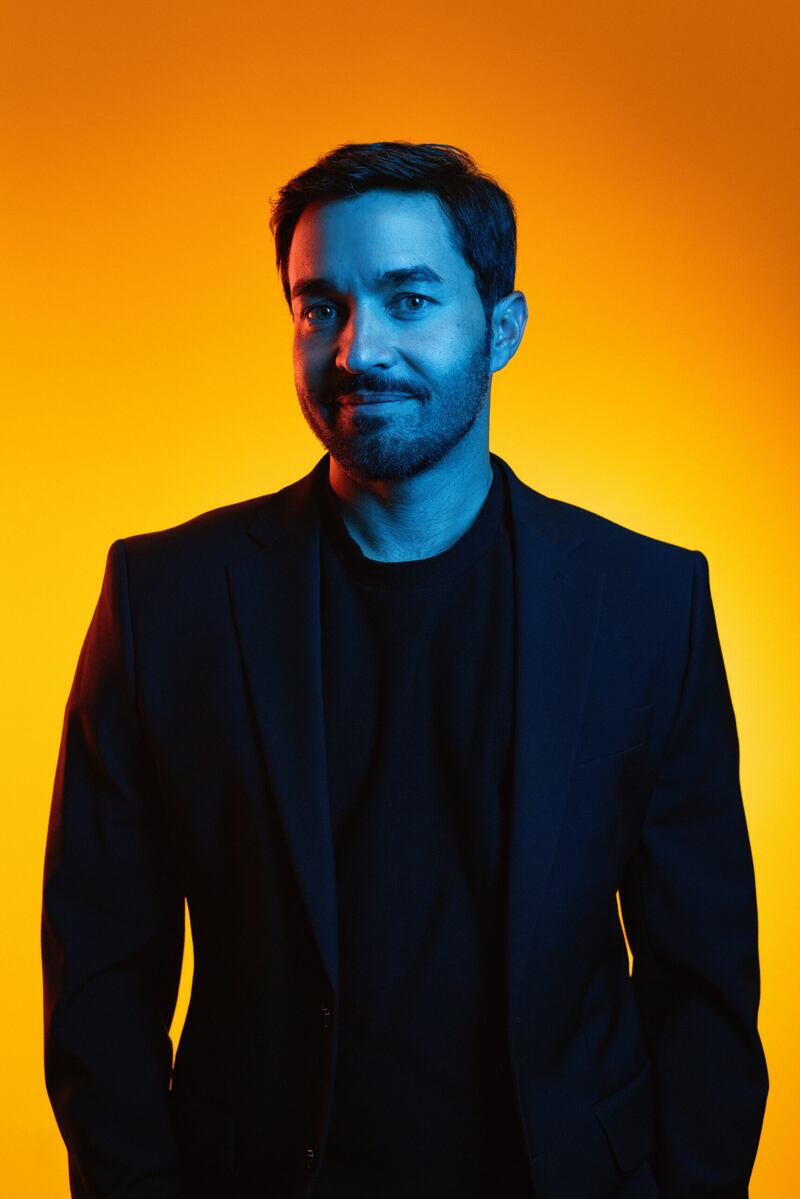
Arturo Fuentes
Director, Global Philanthropy | Young Living
What is your favorite part of your job?
- My coworkers. 2. Monitoring how our outputs generate social value. 3. Opportunities to co-create change.
What is the biggest challenge you’ve had to overcome to get where you are today?
My mental chatter. I’ve realized that the determining factor of my success in any venture often comes down to my own self-talk and the beliefs I hold about myself. Rewiring those neuropathways has been a process. More and more, I realize the way I talk to myself matters. Eventually, those internal dialogues do materialize in my physical experience.
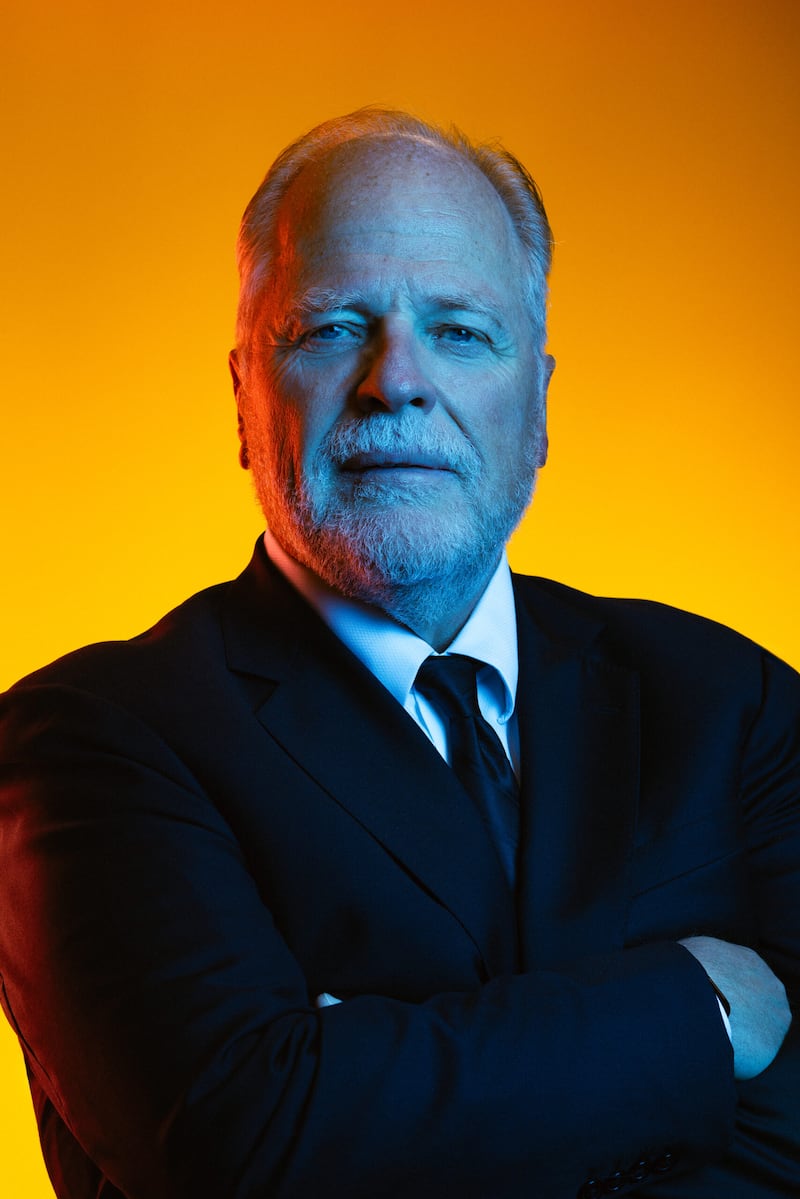
Rick Folkerson
President | Success In Education
How are you involved in changing the landscape of Utah’s business community in regard to DEI?
We help all students see the importance of a career choice, and once a choice is made, we help them find the educational pathways that align with higher education degrees. We emphasize first-generation college graduates and lower socioeconomic students as well as students of color! This gives all students the opportunity to engage in education that will allow them to move forward and be successful in their lives.
What is your favorite part of your job?
I love working with students and educators in shaping lives through education. I know education is the great differentiator in helping change lives and provide generational change.
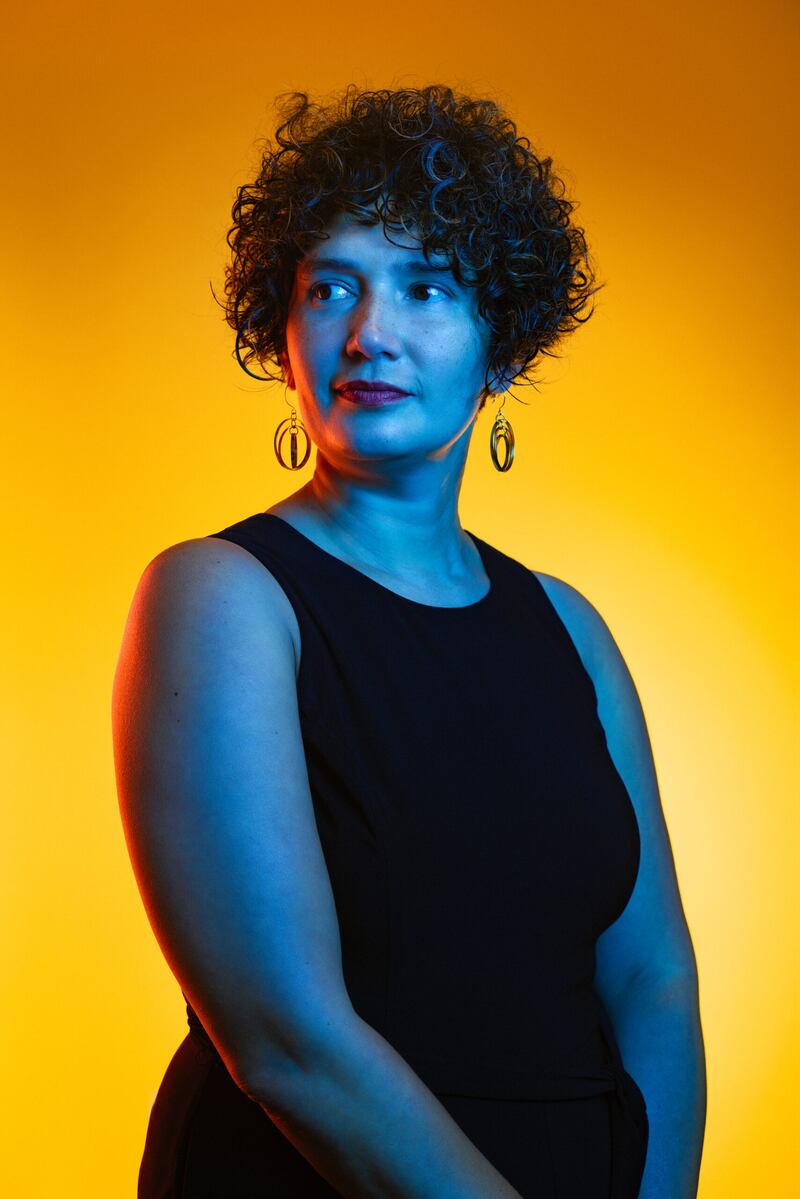
Tanei Atagi Henry
Founder | Provo Girls Summit
Executive Director | Introducing Tomorrow
What is your favorite part of your job?
I love and relish every moment of our two-hour annual event, Provo Girls Summit. It is magical to see the girls’ faces light up when they hear the introduction of a woman whose career speaks to them. It is beautiful to watch those girls—who are typically more shy—approach a professional they have been waiting to talk with and summon the courage to ask a question. It is inspiring to see women who have worked very hard throughout their lives show up and be cheered on for their hard work, be asked for their autograph, and have a captive audience curious about careers that they love. It is an honor to be in an intergenerational event where each generation is serving each other.
Who inspires you most? Why?
To all the girls and women showing up in scary situations, we are cheering for you! We see you! You are inspiring us! We are trying to give you more exposure so that career paths are given a little bit of light. We want our daughters and your daughters to know that there are rocket scientists, geologists, animators, attorneys, entrepreneurs, engineers, dentists and paleontologists who are women, and they can be one, too. We believe “if she can see it, she can be it!”
Corporation
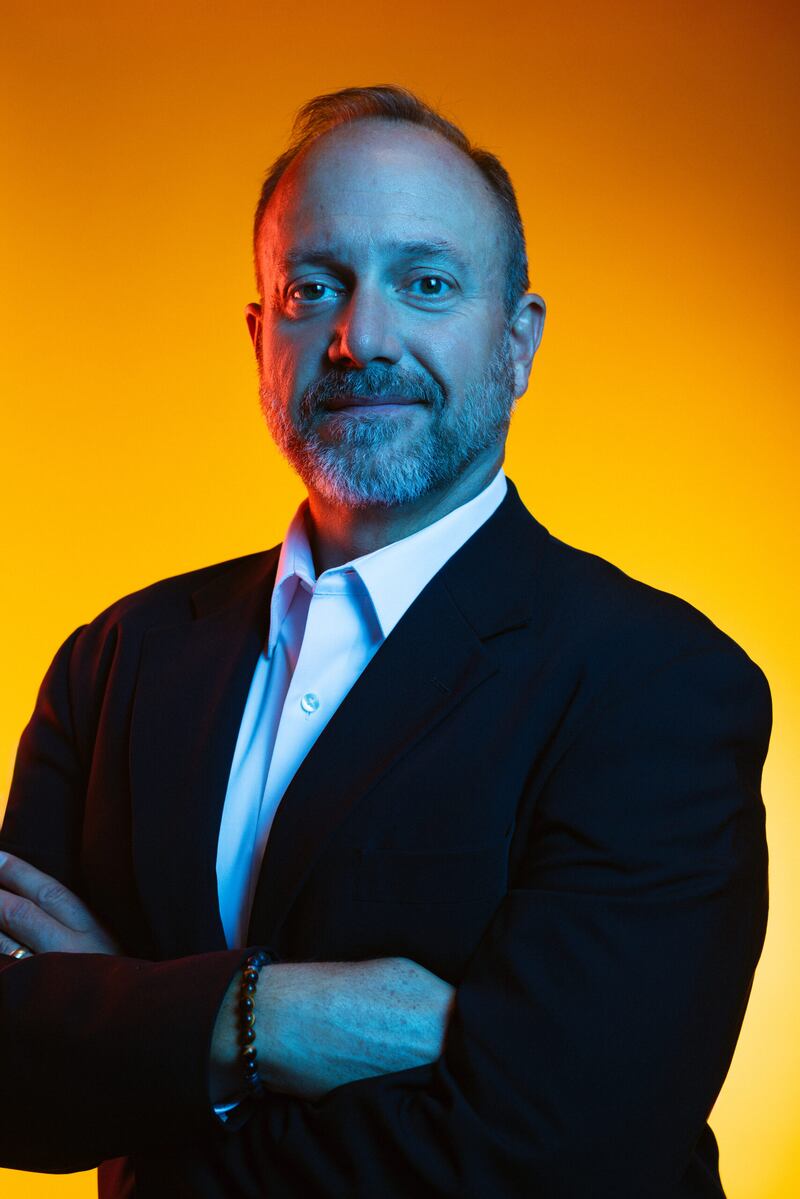
Eide Bailly
Q&A with Paul Skeen | Partner & DEI Council Co-Chair
What would you like to see happen in terms of DEI efforts in Utah?
I would like to see a clearer path for parents who work a reduced schedule or exit the workforce for a period of time to return to the workforce on an executive or partnership track. Utah loses so much talent by not properly establishing this type of path.
What can other companies and organizations learn from you?
Just start. We started out with a small group of passionate individuals and focused on our own education and awareness. We needed to understand what diversity, equity and inclusion mean to us at Eide Bailly and then share that message across the firm. Each year, we took on a little more. You can’t do it all in one year, so focus on what’s most important and go from there. Charge ahead with the best intentions, knowing that you will slip up and make mistakes—but through the process, you learn and grow and make meaningful impacts for your staff and communities.
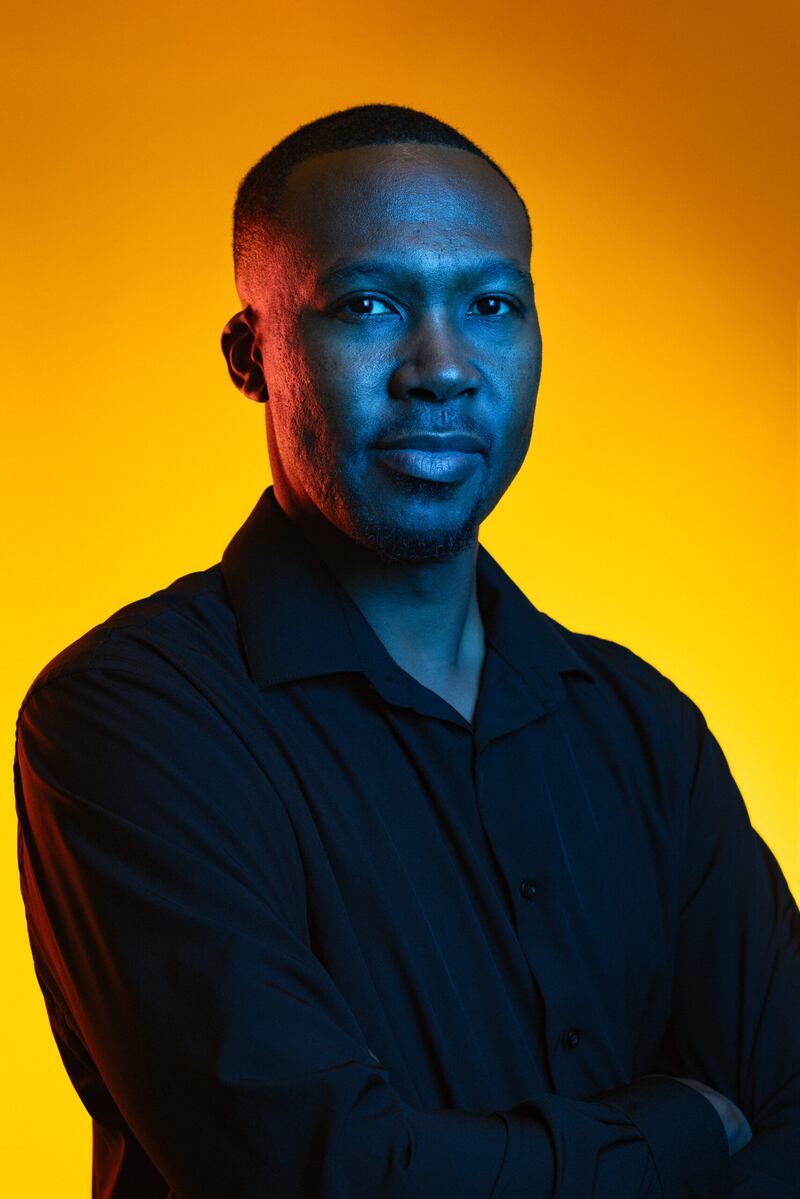
L3Harris Technologies
Q&A with Eddy Thompson Jr. | Global Trade Manager
How are you involved in changing the landscape of Utah’s business community in regard to DEI?
Our employee resource group, L3Harris Employees of African Descent (LEAD), promotes diversity, professional growth and support for our community. Over the last three years, LEAD has helped L3Harris improve in diverse hiring, career advancement and diversity in leadership and has created diversity-inspired book clubs. In 2020, LEAD raised over $30,000 for Backman Elementary in Salt Lake City’s Rose Park neighborhood. My team and co-workers sponsor and volunteer at events like the Afro Utah Festival, the Ogden NAACP’s Juneteenth Celebration, African Heritage Festival and more.
What do you want others to know about the importance of DEI in business?
The work is tough, challenging and painful at times. Many in our community have fought to push us steps ahead just to be met with pushback and take three steps back. We stand on the shoulders of giants—both well-known and hidden—who worked to promote inclusion, didn’t take no for an answer, and sacrificed so someone coming behind them might have an opportunity they didn’t. While we are aware of the many challenges, we must also recognize progress with many companies here in Utah. Our presidents, CEOs and allies are a critical piece to this work. Your leadership, openness and intentionality are key factors in allowing for respectful discussion and addressing internal challenges. Together, we can make changes to help our employees bring their best, most authentic selves to work, which is a huge benefit to the success of our businesses!
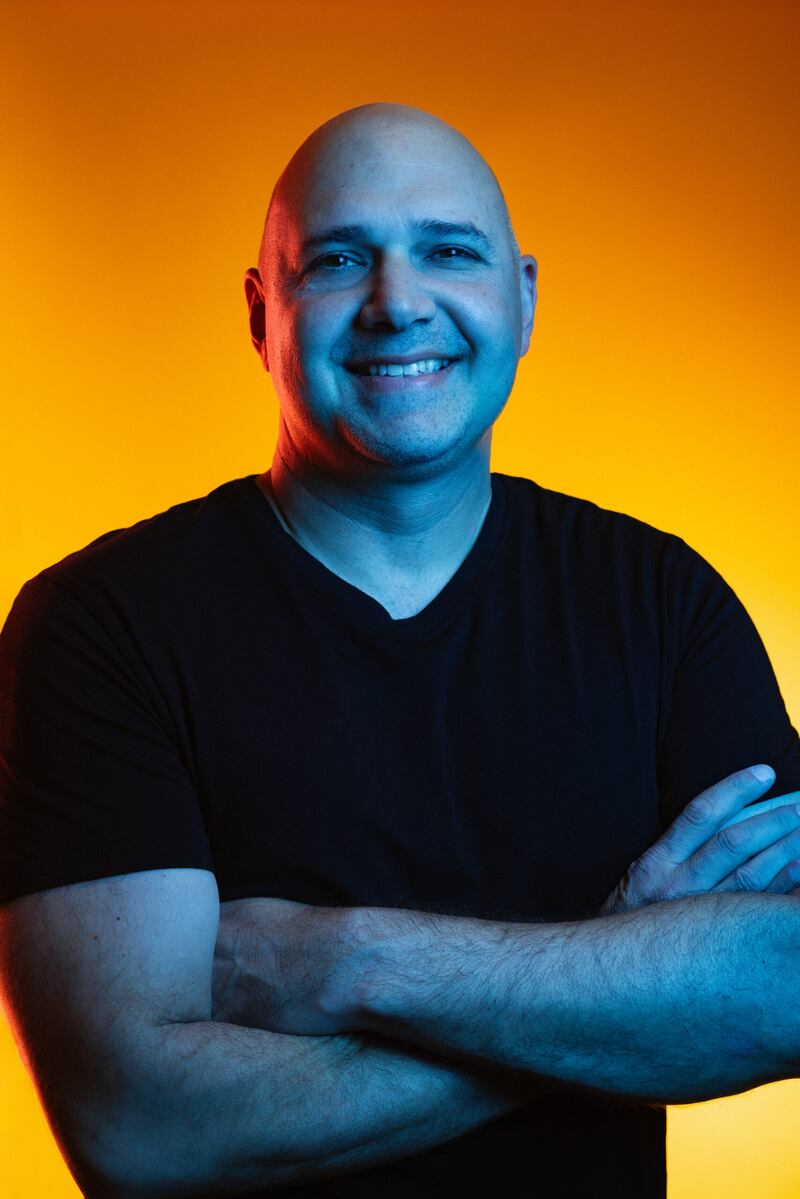
Meta
Q&A with William Marks | Community Development Manager
What would you like to see happen in terms of DEI efforts in Utah?
We need more white males to be outspoken, highly vocal public allies who match their actions to their words. I think it gives minority groups credibility when non-minorities support them. People need to know that men support women’s rights, that white people support Black Lives Matter, that veterans support reductions in military and police spending, and that cisgender people support LGBTQ+ rights.
What do you look forward to achieving most?
It’s really about leveling the playing field, then creating a welcoming atmosphere in Utah for people of diverse backgrounds. When minority workers in Utah go to meetings, I want them to see Black directors and VPs at the table. When high school girls go to career fairs, I want them to see women in tech jobs. And if those diverse people need a little boost because the system has neglected them for decades, I want to make sure grant funds help level that out.
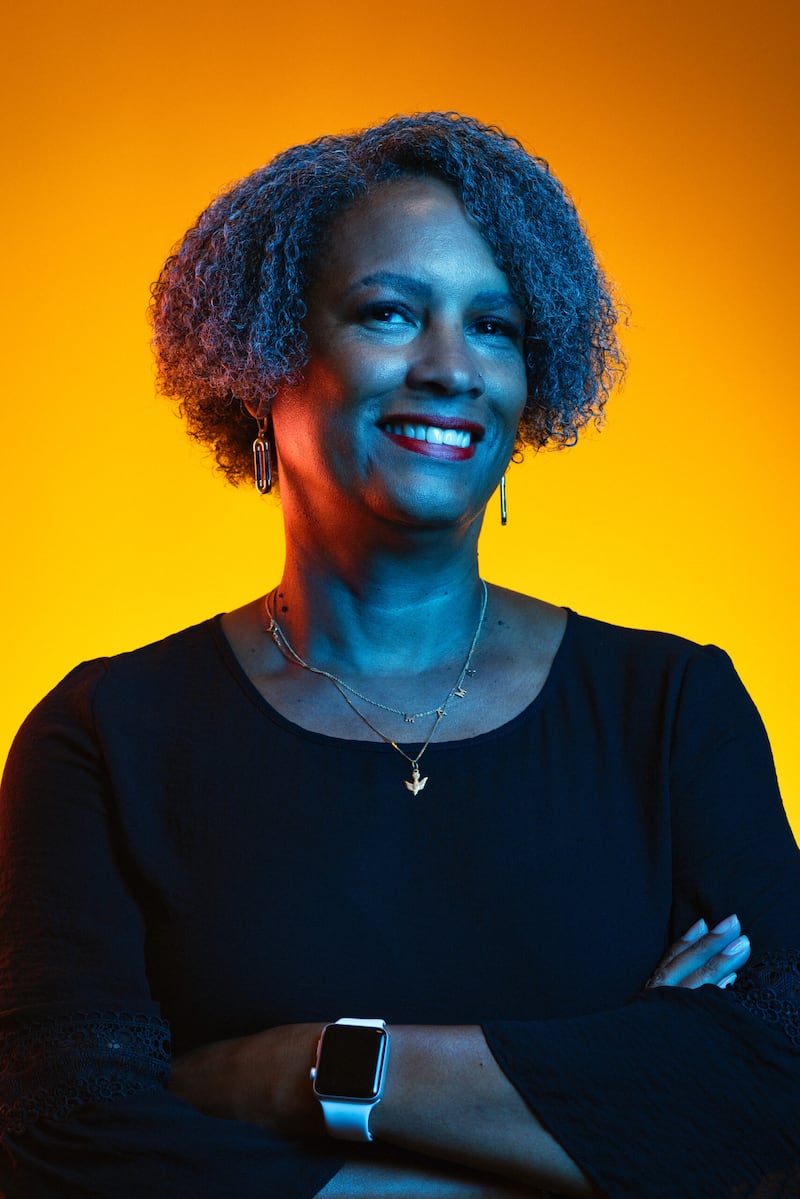
Progressive Leasing
Q&A with Connie Washington | VP, People & DEI
What would you like to see happen in terms of DEI efforts in Utah?
I would like to see Utah become a leader in the DEI space. We have some amazing DEI professionals in our state who are truly passionate about diversity, equity, inclusion and belonging. We just need to continue to come together, share our resources and fight the good fight when necessary.
What do you want others to know about the importance of DEI in business?
Your people are the most important resource in your business. Ensure that you are growing all of your people, not just the people that look like you or the majority. You brought each person into your organization because you believed they would bring value. Challenge your leaders to bring out the potential in each of their employees.
Education
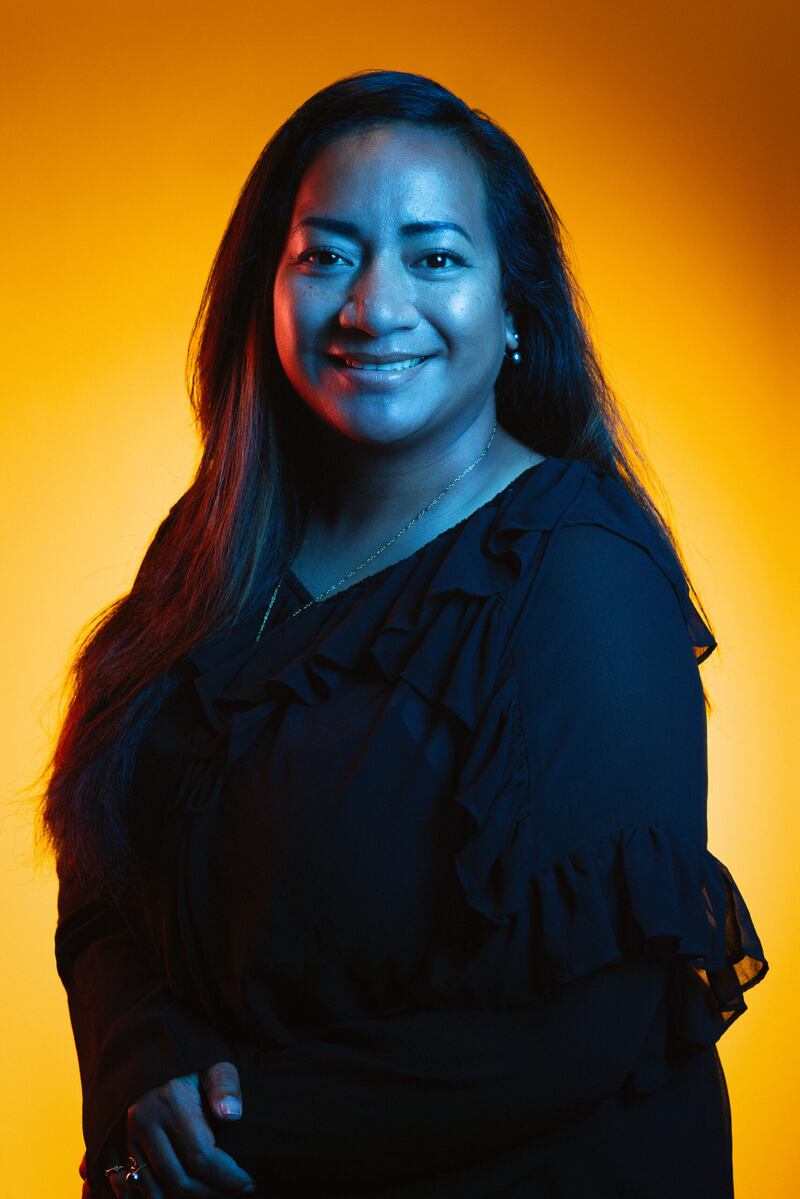
Kesa Vakapuna
Owner | Axis Connect Trucking School
https://axisconnecttrucking.com/
What do you look forward to achieving most?
Helping our communities get out of a poverty mindset by starting a small business and surrounding themselves with like-minded individuals.
What organizations do you find most important to support? Why?
We support the Department of Workforce Services. We want to put students back into the workforce in an industry that’s always in high demand and make a respectable income without all physical labor.
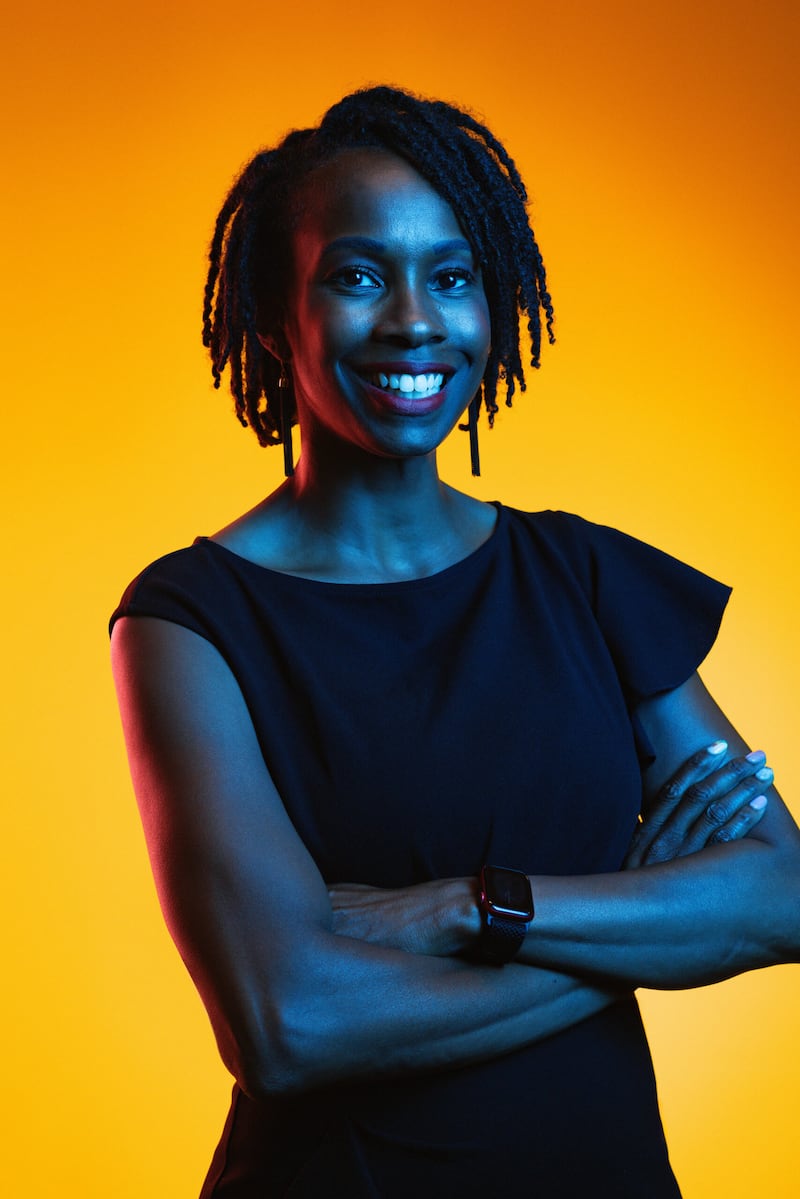
Michelle Love-Day
Founder, Director & Educator | RISE Virtual Academy & Love-Day Educational Consulting
How are you involved in changing the landscape of Utah’s business community in regard to DEI?
Through Love-Day, I’ve brought attention to schools and organizations and helped students feel welcomed. I help provide understanding that groups must not only “talk the talk” but “walk the walk.” Many do not think that education is a business. Not only is it a business, but education must be successful here in Utah for any other business to thrive.
What do you want others to know about the importance of DEI in business?
Don’t talk about doing DEI, be about it by doing DEI. It isn’t easy or a one-year fix. It is a muscle you practice each day. You have to connect with the community and make sure the living experiences of your employees outside of your company match the working conditions inside your company.
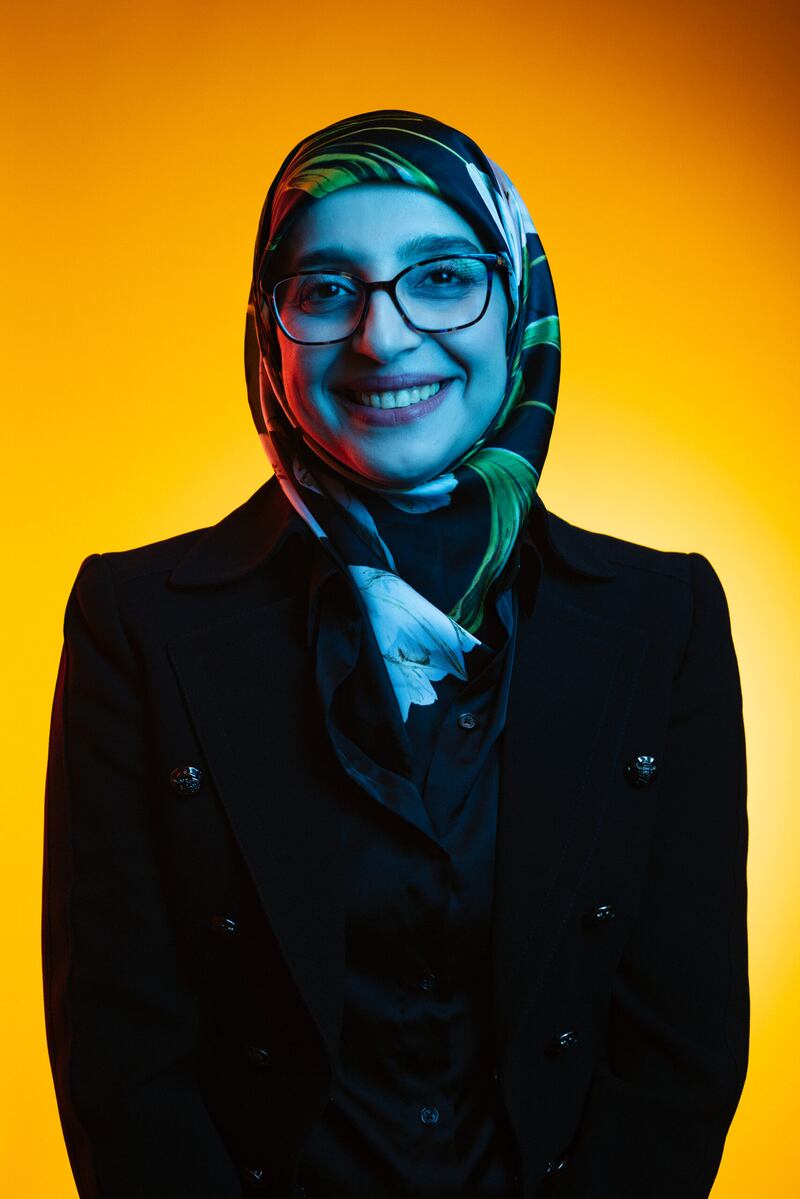
Rasha M. Qudisat
Chief Inclusion & Diversity Officer | Utah Valley University
How are you involved in changing the landscape of Utah’s business community in regard to DEI?
Utah Valley University’s focus on providing equitable and inclusive education for a diverse population is essential to meeting the educational needs of the region and state. It’s great to see that UVU has put in significant efforts to ensure the campus is welcoming to all. This approach will undoubtedly help students feel supported and included, which is crucial for their academic success and exceptional employee experiences.
Who inspires you most? Why?
I am constantly inspired by the people around me. Every person has their own incredible story to tell, and I am always eager to listen and learn from their experiences and perspectives. Whether it’s friends, family or strangers I meet, every conversation is an opportunity to gain new insights and broaden my understanding of the world. It’s amazing how much we can learn from each other when we take the time to truly listen and appreciate each other’s unique perspectives.
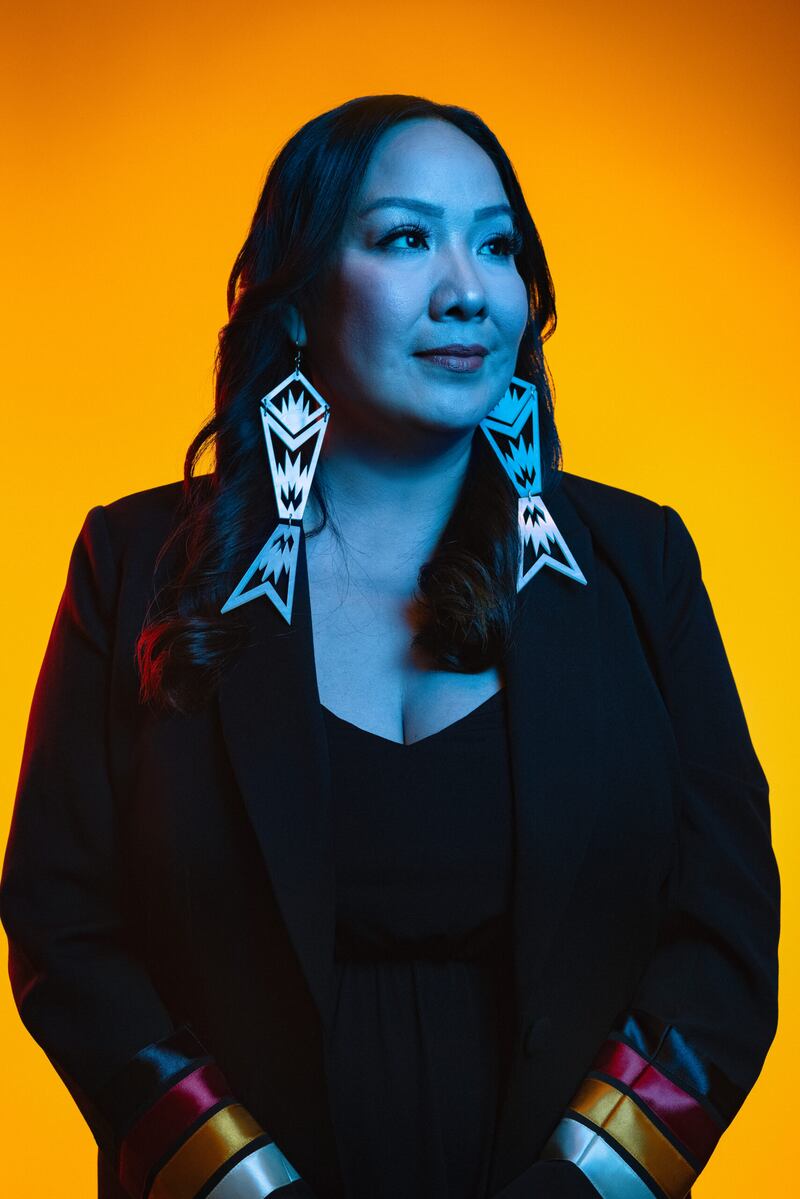
Samantha Eldridge
Director | University of Utah American Indian Resource Center
What is your favorite part of your job?
I enjoy working with students. Being part of a community where we are often not seen or represented, I want our Native youth to be proud of who they are and where they come from. As a low-income, first-generation college student from a reservation, I share the same lived experiences as our Native/Indigenous students. Our center provides that welcoming home away from home and celebrates and affirms their identity. I tell our students they are not alone. Each student has a gift to share, and every student belongs here.
What is the biggest challenge you’ve had to overcome to get where you are today?
Our community is often seen as a monolith. Indian Country is complex and diverse. There are 574 tribal nations with vibrant cultures, traditions and languages. I can only speak for myself and through my own lived experience.
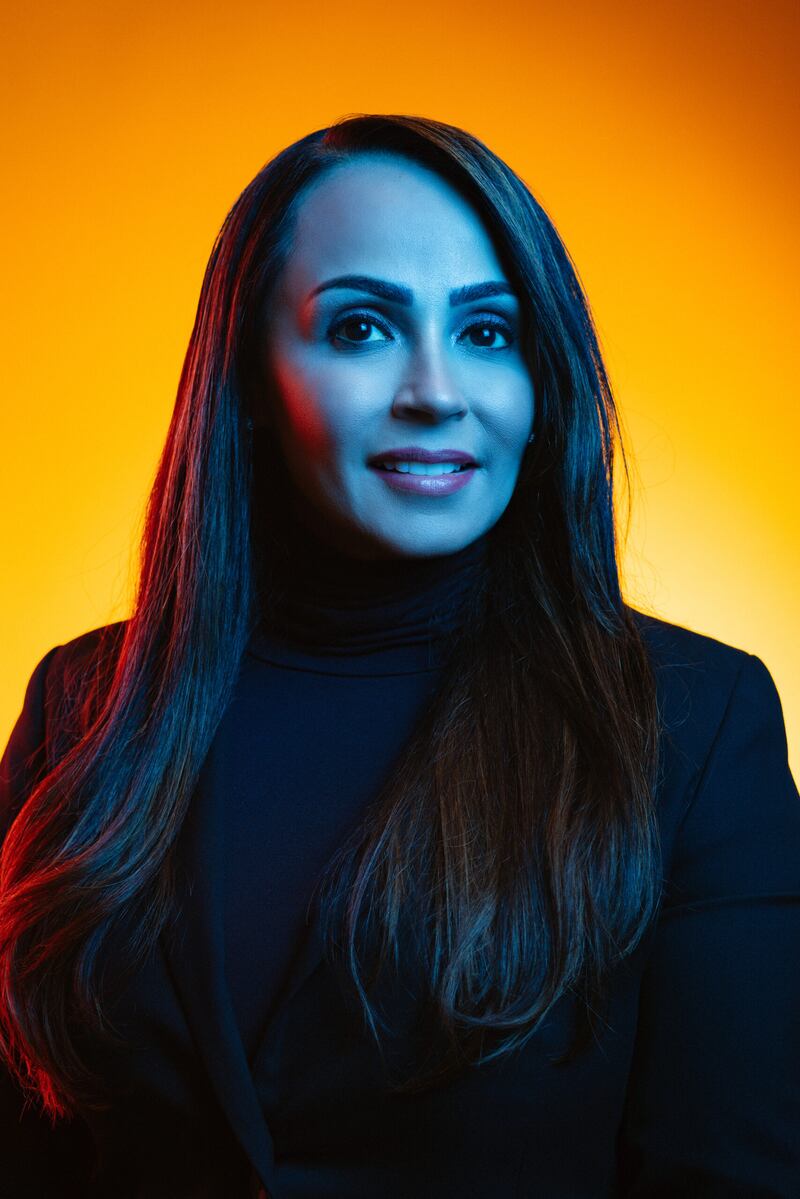
Yudi Vargas Lewis
Executive Director, Hispanic-Serving Institution Initiatives | Weber State University
How are you involved in changing the landscape of Utah’s business community in regard to DEI?
Weber State University (WSU) is committed to becoming an emerging Hispanic-Serving Institution (eHSI) by growing our percent of enrolled and graduating students who identify as Hispanic or Latino to 15 percent by fall 2025. Increasing our Hispanic and Latino enrollment to 15 percent reflects Utah’s Hispanic and Latino population, but to better reflect the Latino population of Ogden, that number needs to be even higher. Becoming an eHSI isn’t about placing one group over another—it’s about helping WSU better reflect its surrounding community, creating a service model that can be adapted for all students and improving the local economy.
Who inspires you most? Why?
Several individuals have inspired and continue to inspire me. Mercedes Vargas was a trailblazer within a rural community in the Dominican Republic who empowered women in her community to understand their voices were valuable and powerful. My grandmother helped me find my voice. During my high school years, Mr. Washington Collado taught me the value of advocating for students and how creating opportunities changed their lives. His life has been dedicated to impacting students and their future generations, and his example guided my work with K-12, higher education and the community. My sister, Angela Pichardo, inspires me to be resilient and to cherish my daily interactions with the people I serve. Even in the face of a brain cancer diagnosis, she finds the strength to help everyone around her see the bright side of life.
Inspirational Leader
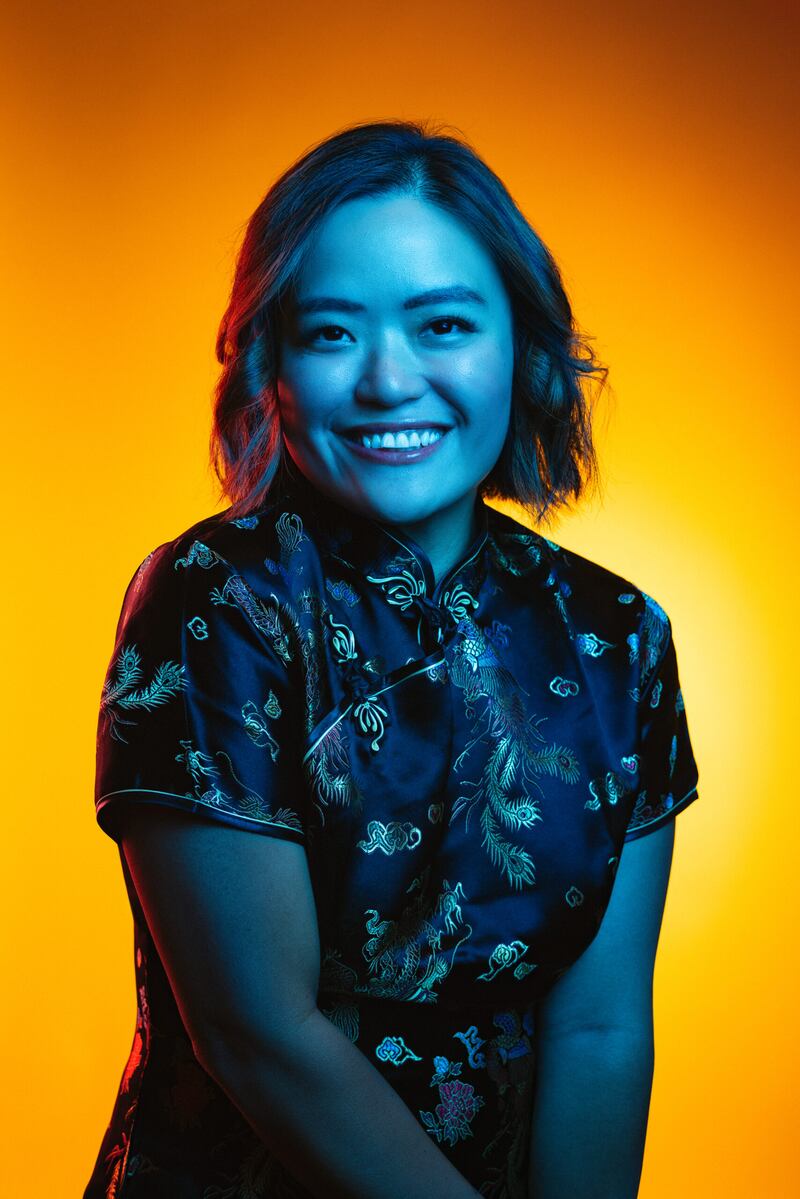
Cindy Chia
Founder & Psychotherapist | Aspire Psychological
How are you involved in changing the landscape of Utah’s business community in regard to DEI?
I have been championing the cause of mental health within the Asian demographic both within my private practice and across my social media platform (instagram.com/cindymchia). Our approach involves active philanthropic contributions alongside dedicated participation in Asian-focused occasions such as Asian American and Pacific Islander (AAPI) annual festivals, the Daybreak Dragon Boat Festival and others. Moreover, we curate authentic and empathetic content that sheds light on the challenges faced by the AAPI community within the realm of mental health.
What do you look forward to achieving most?
I anticipate a future where the majority of the Asian populace will liberate themselves from self-imposed stigma, embracing the notion that their sons and daughters can freely pursue mental health support. Envisioning a time when we can openly communicate our challenges without apprehension of societal censure or marginalization is a compelling aspiration.
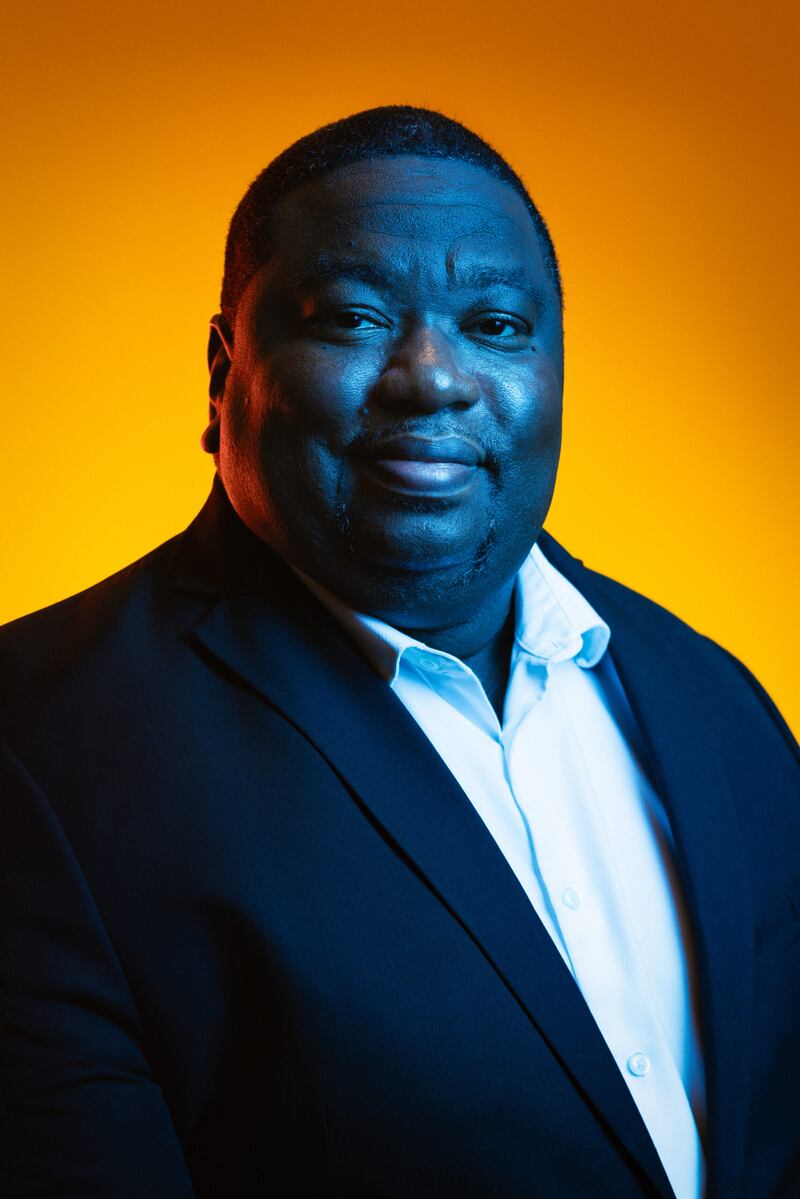
Ivan Whitaker
VP, Partner Success | MD Ally
What would you like to see happen in terms of DEI efforts in Utah?
I hold the aspiration that business leaders in Utah will wholeheartedly endorse mentorship and development programs, ushering in a substantial and positive transformation. My perspective is anchored in the notion that these programs serve as foundational cornerstones instrumental in sculpting the intricate tapestry of diversity and inclusion. It is my fervent desire to witness this endorsement extend its grasp beyond the confines of MBA circles, embracing middle and high school students. This emerging cohort—poised to be the torchbearers of our future—often emanates from marginalized communities where access to mentoring is not readily available.
What do you want others to know about the importance of DEI in business?
Incorporating individuals with varying cultural, ethnic, gender and socioeconomic backgrounds can lead to a more comprehensive understanding of customer needs and preferences. This, in turn, enhances a company’s ability to tailor its products and services effectively to a wider range of consumers. Additionally, research shows that diverse teams tend to offer more innovative solutions and better problem-solving abilities due to the multiplicity of perspectives they bring. By fostering an inclusive environment, businesses can tap into this creative potential and stay ahead of the competition.
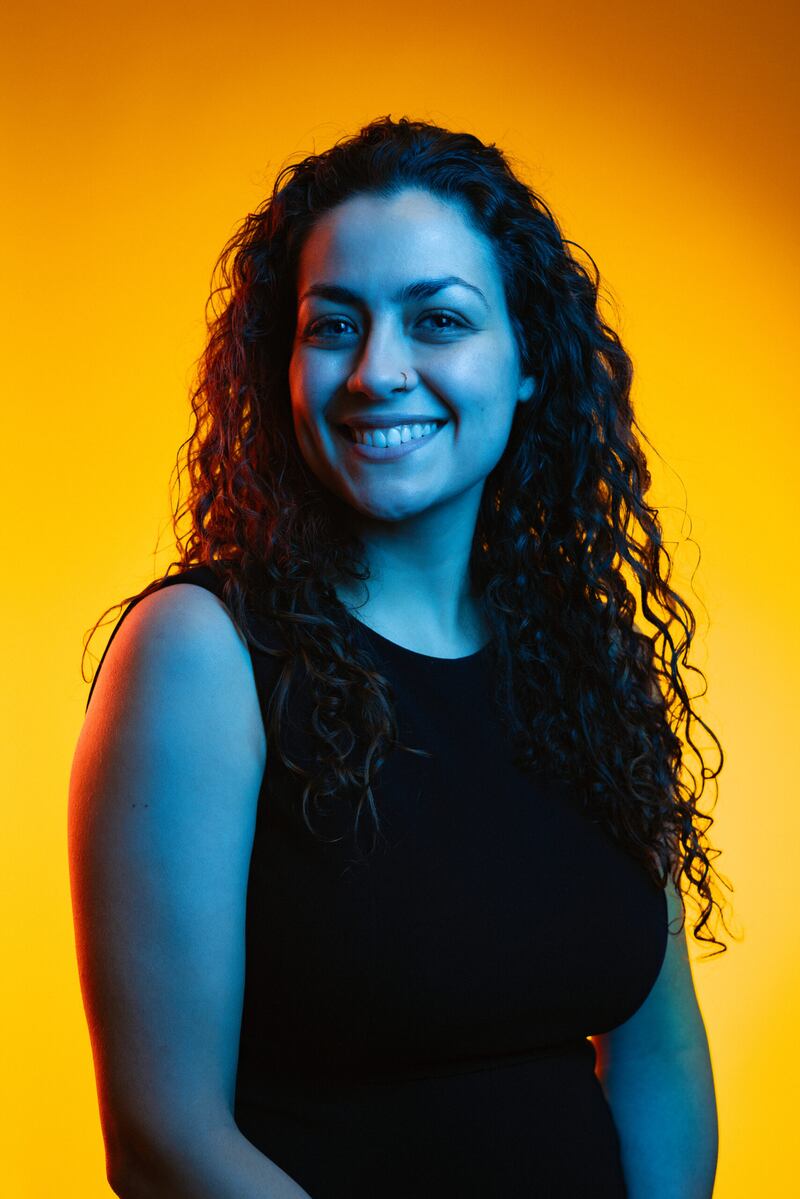
Salma Moosa
SVP | Goldman Sachs
What is the biggest challenge you’ve had to overcome to get where you are today?
Never really fully fitting in a singular community. People generally interpret aspects of my personality and identity as being in conflict. I do social justice work but work for a big financial firm. I’m queer but am part of an Arab-Muslim community. Vegetarian, but don’t like animals. Foster parent, but can live a very happy life without children. I have a common experience of having a really strong connection to a community, but that connection is generally layered with a level of disappointment due to another aspect of my identity. But I will also say that the biggest obstacles can sometimes, in a different light, be a strength. I’ve learned to always find a way to connect with and influence someone that, on paper, is so drastically opposing to me. That helps me develop sponsorship and allyship for the communities I work for.
Who inspires you most? Why?
The diverse people I work with inspire new ideas and connections. I work on a team where 25 percent of the people didn’t grow up in the United States, and 80 percent didn’t grow up in Utah. Overall, I see such diversity across race, culture, language, sexuality, educational background, neurodiversity, family structure, etc., and each brings a uniquely different perspective. Whether we’re trying to solve business problems, DEI problems or personal problems, my team is always able to come up with better, more effective solutions when there are different perspectives in the room. It’s not about one person or ideology that inspires me—it’s the diversified perspectives, thoughts and people.
Government
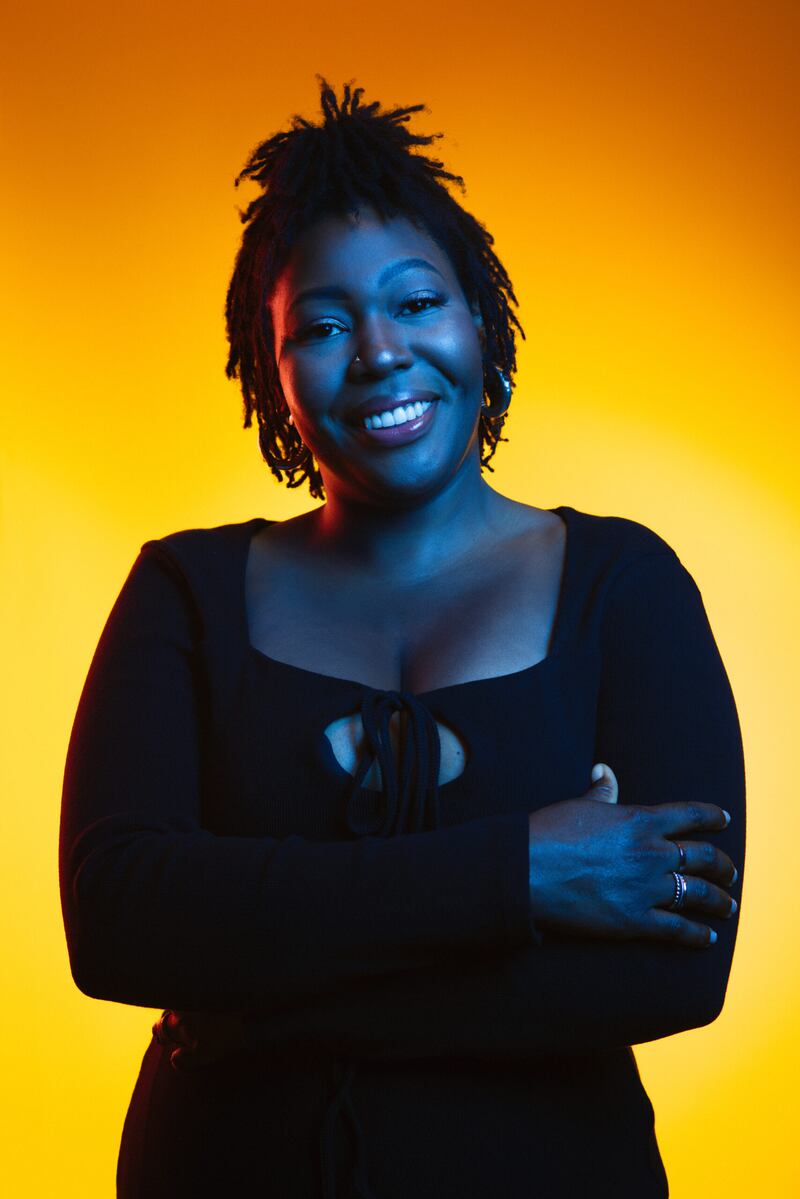
Ashley Cleveland
Senior Policy Advisor & Deputy Director, Community Outreach | Salt Lake City Mayor’s Office
What would you like to see happen in terms of DEI efforts in Utah?
I would like for DEI conversations to be better understood. I want access and belonging to be understood. These are all different barriers that keep all Utahans from having the best Utah we can. I want more people to feel welcome to advocate for others and themselves. DEI is more than a “Black issue.” It is not a divisive issue; it’s a path to come together. It’s the data narrative we are afraid to focus on. It’s what we need to be tracking to highlight our wins and not just our gaps. It’s what we should be striving for. We can’t get to the other side of the rainbow unless we cross it—and I know it’s high and scary.
What do you look forward to achieving most?
I look forward to achieving a bunch of things—there is no “the most” because there’s so much to do, from offering payment to all 280+ Boards & Commissions members to providing sustained mini-grants to our most disinvested redlined neighborhoods. One day, I want to see Fleet Block as a safe, creative haven for social justice, community services and economic development. I need all communities to reach out to all city divisions, departments and staff as often as our most represented communities are.
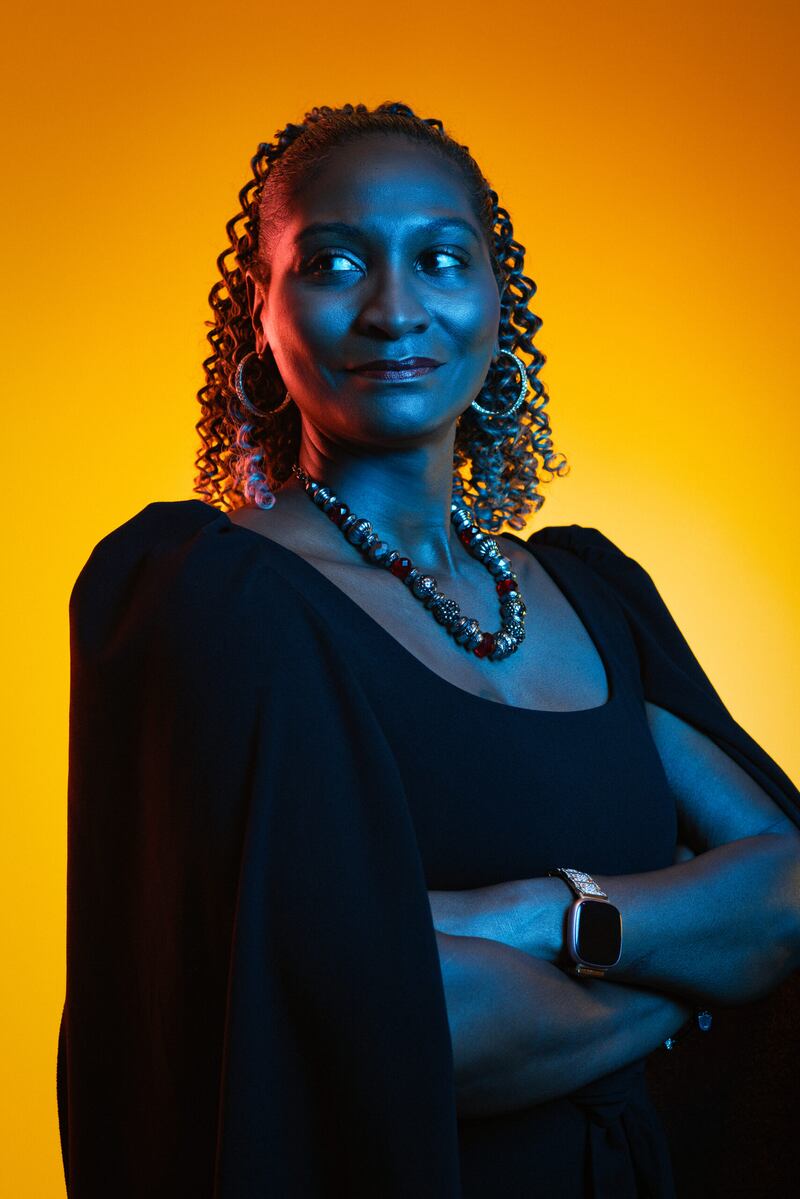
Jocelyn C. Hatley
Director of Diversity, Equity, Inclusion & Accessibility | Hill Air Force Base
What is your favorite part of your job?
My favorite part of my job is when I can actually see a person reverse their views or opinions on certain issues. I feel joy in my heart when I see the transformation of a person to become a fierce advocate and a strong ally for a program or cause they strongly opposed previously, simply from me providing them with the proper knowledge.
What do you want others to know about the importance of DEI in business?
DEI means that everyone is included, treated equally and provided with the same opportunities despite their differences. More often than not, when I am first approached on the discussion of DEI, that topic is centered on race and that it is a fad. I want others to know that DEI is more than race and to not forget about individuals with disabilities, the generational gap within the workplace, the various educational and financial backgrounds of employees, atheists, members of the LGBTQ+ community and the many other ways that individuals in the workforce are different. DEI should not be treated as a flash in the pan—it is an essential part of business success.
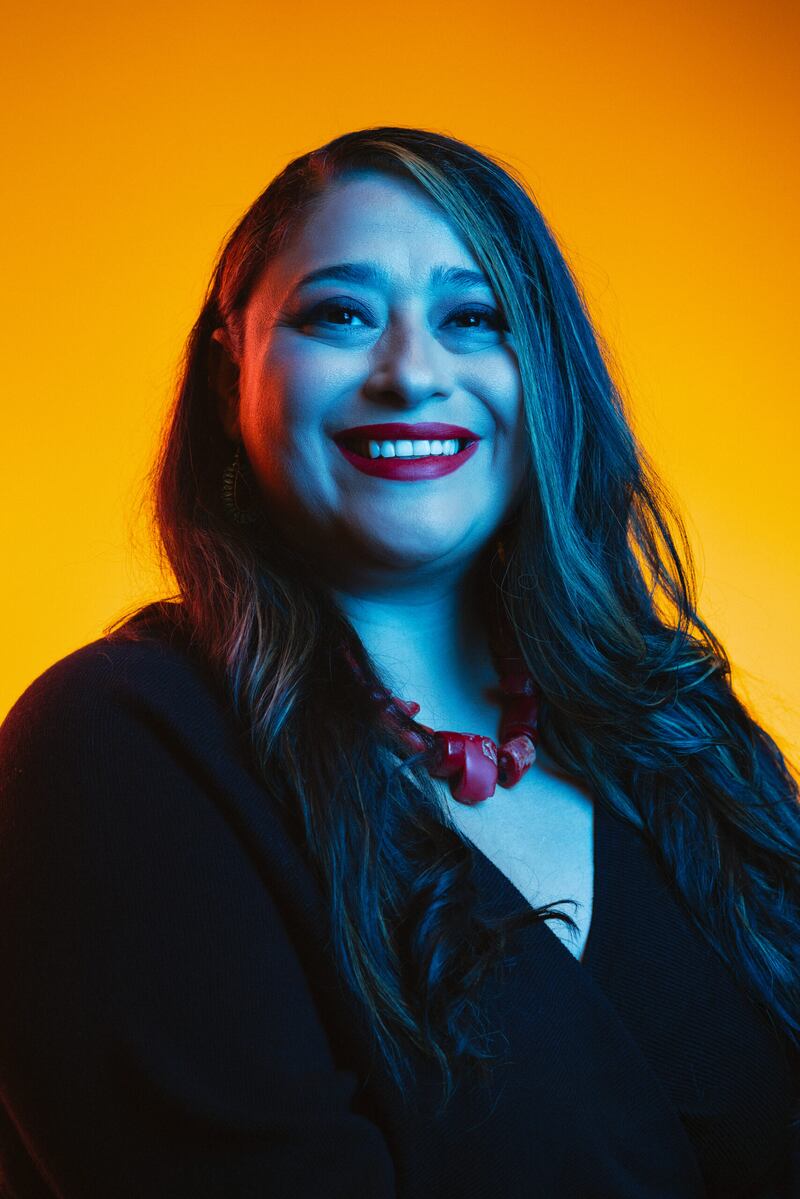
Rosalba Dominguez
City Council Member | Murray City, District 3
Owner | Table 22
How are you involved in changing the landscape of Utah’s business community in regard to DEI?
Murray City has a rich history of cultural diversity and is a place Greek, Italian, Latino and Japanese immigrants called home in its early days. I believe this diversity in perspectives and backgrounds shaped Murray to be a place that values respect, collaboration and community. I’m proud to be continuing this legacy today and championing the voice of my residents and Latino community.
What is your favorite part of your job?
I love serving my community and building bridges between residents, stakeholders and the city. A lot of people feel disconnected from the government, and to overcome that, you need to meet people where they are. In our grassroots campaign, I was focused on meeting people at the door to hear directly from them. From there, I framed my campaign on the needs and hopes of my constituents rather than an agenda. It’s a lot of hard work, but it’s always worth it to see people engage with their community and feel proud about the direction it’s going.
Distinguished Leader
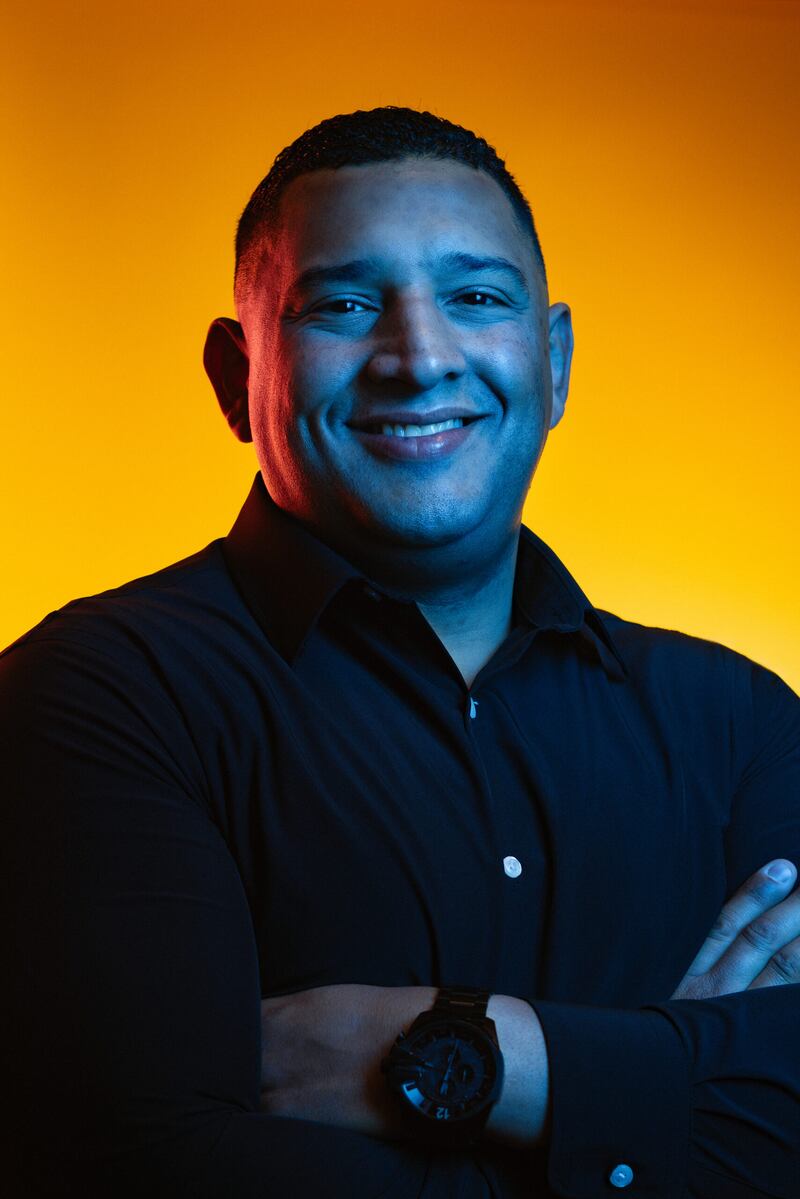
Carlos Alejandro Moreno
President & Founder | New Leaders for America
What is the biggest challenge you’ve had to overcome to get where you are today?
My biggest challenge—but at the same time, my biggest blessing—is being an immigrant in the United States. As an international student, I almost became homeless. The Venezuelan regime charged me with treason and conspiracy because of my human rights activism in the international community. My bank account was frozen, and I had to apply for political asylum in the middle of extreme poverty. My wife, son and I had really hard times together, but those hard times made us who we are today. We became new people with a deep love for America. After four months of applying, the U.S. government granted me political asylum! I always say, “America is not a dream; America is a miracle!”
What is your favorite part of your job?
Inspiring people to take action and be civically involved. The only way to change our reality is by acting, leading by example and building channels of communication between those who have differences.
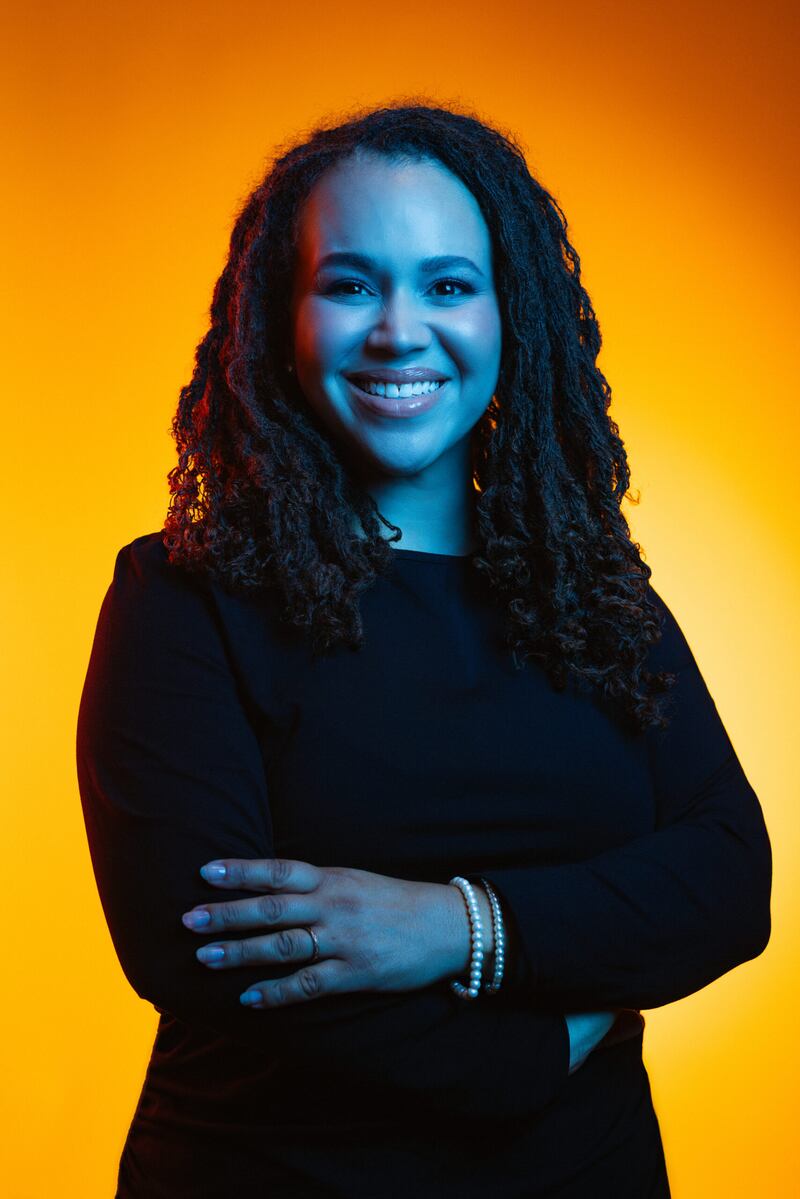
Melanie D. Davis, MS, LCMHC
Founder | PLAE Therapy
How are you involved in changing the landscape of Utah’s business community in regard to DEI?
We are excited for PLAE Therapy to be the first Black-owned child and adolescent integrative mental health space and play therapy space. PLAE Therapy is the third mental health practice I have founded in Utah, all of which serve the state’s diverse community. We are grateful for the opportunity to build opportunities for both clients and the wonderful providers we have on our team who serve them.
What is your favorite part of your job?
Play, expression and connection are how children learn and grow. It’s how they develop socially, think creatively and embrace the value of their authenticity. I founded PLAE as a space that ensures every child—no matter their background, community or circumstance—has the opportunity to reap the true benefits of play and optimal mental health care.
Cameron Russell Williams Impact Award
Presented by Domo
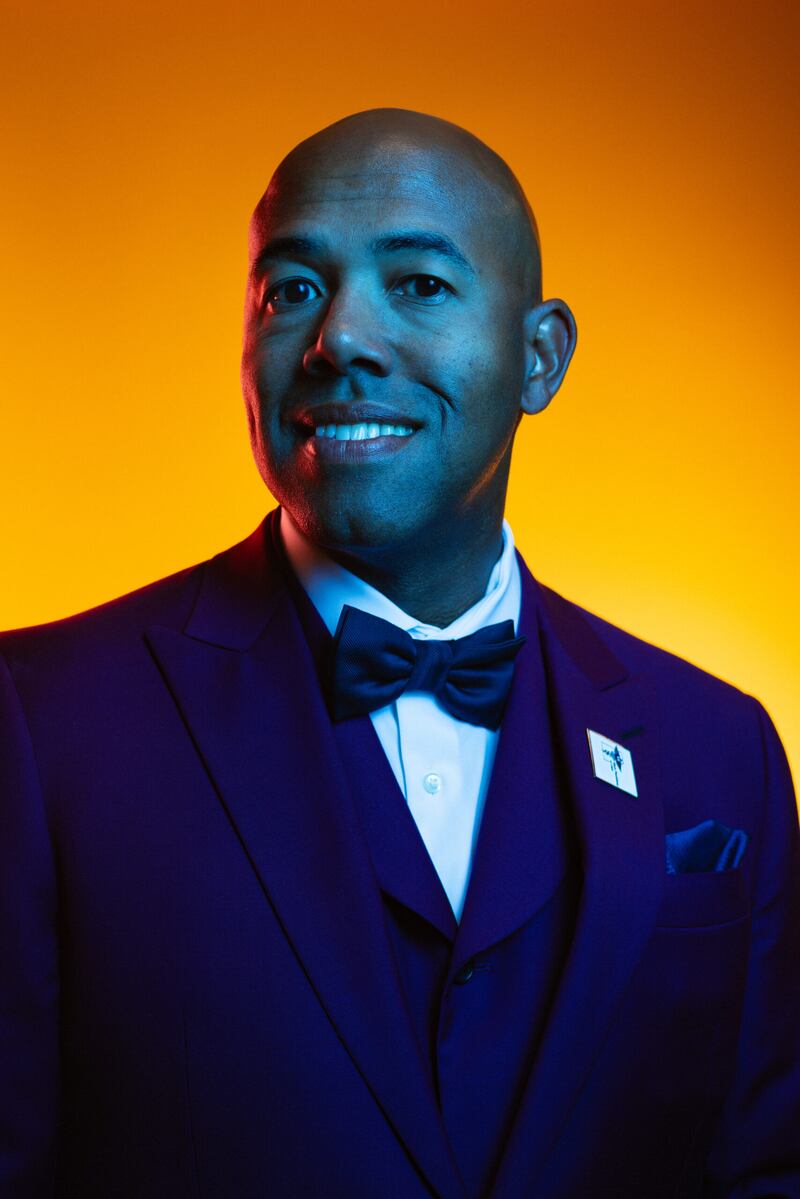
Richard Arthur Ferguson, MD, MBA
President & Founder | Black Physicians of Utah
How are you involved in changing the landscape of Utah’s business community in regard to DEI?
Part of Black Physicians of Utah (BPOU)’s mission is to improve the health care outcomes for Black and marginalized Utahns. To achieve this mission, the recruitment and retention of a Black health care workforce is vital. Our initiatives have a great impact on Utah companies, attracting diverse talent with the knowledge that there is an organization here that values their employees and the care they will receive.
What do you want others to know about the importance of DEI in business?
Utah will continue to attract diverse talent, but all Utah industries must remain welcoming to those diverse employees. Black and underrepresented minority Utahns are a strength in Utah’s business landscape. Diverse talent will remain if they receive culturally competent and informed care.To learn more about our 2023 Living Color honorees, check out the YouTube playlist below. Access honoree photos from the event here, and general event photos here.

